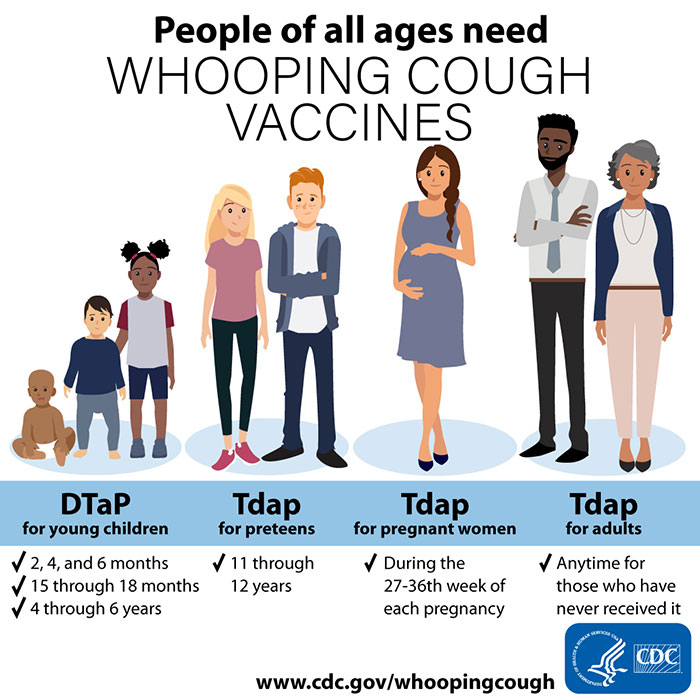UPDATED MAY 20, 2024: The Lexington-Fayette County Health Department has declared pertussis, or whooping cough, in outbreak status after nine total cases have been confirmed since late April, including three more cases on Monday. The latest are a case at Lafayette High School, a case at St. Peter and Paul Catholic School and a community case (a person in their 80s).
All central Kentucky caregivers should be on the lookout for signs and symptoms of pertussis, or whooping cough, while ensuring their kids are up to date on their vaccines or fully vaccinated with the booster.
Pertussis is a highly contagious respiratory illness spread by coughing and sneezing. It affects people of all ages but can be most serious in infants and those with chronic diseases. More information can be found at www.LFCHD.org/pertussis.
Symptoms
The early symptoms are similar to a common cold: runny nose, sneezing, low-grade fever and coughing. After 1-2 weeks, the cough often gets worse, changing from a dry, hacking cough to bursts of uncontrollable, sometimes violent, coughing. During a coughing episode, it might be temporarily impossible to take a breath because of the intensity and repetition of the coughs. When finally able to breathe, the person might take a sudden gasp of air, which can cause a “whooping” sound. Vomiting and exhaustion can often follow a coughing spell.
If your child visits a medical provider for these symptoms, be sure to ask the child be tested for pertussis. Caregivers should also monitor their own symptoms (and be tested if symptomatic) and make everyone in the household is up to date on the vaccine, including boosters.
Vaccine
The vaccine against pertussis is routine and required for school-age kids. One dose of the booster vaccine, called Tdap, is recommended for ages 11 and above for protection. Teenagers and adults who have never received the Tdap vaccine should check with their primary care provider or call the health department at 859-288-2483 Monday-Thursday to check availability. Although the vaccine is effective, immunity tends to decrease over time, making the booster important for older children and adults.

The health department is recommending preventive antibiotics for high-risk students who were exposed to pertussis. This includes students with a chronic illness or weakened immune system and those who live in households with the following: a family member with a chronic illness or weakened immune system, an infant or a pregnant woman.
Any school-age children with symptoms of pertussis should stay home from school and visit their health care provider for evaluation, even if they have previously been vaccinated. If found to have probable or confirmed pertussis, they should remain out of school until completion of their antibiotics. For more information about pertussis, call 859-288-2437.

